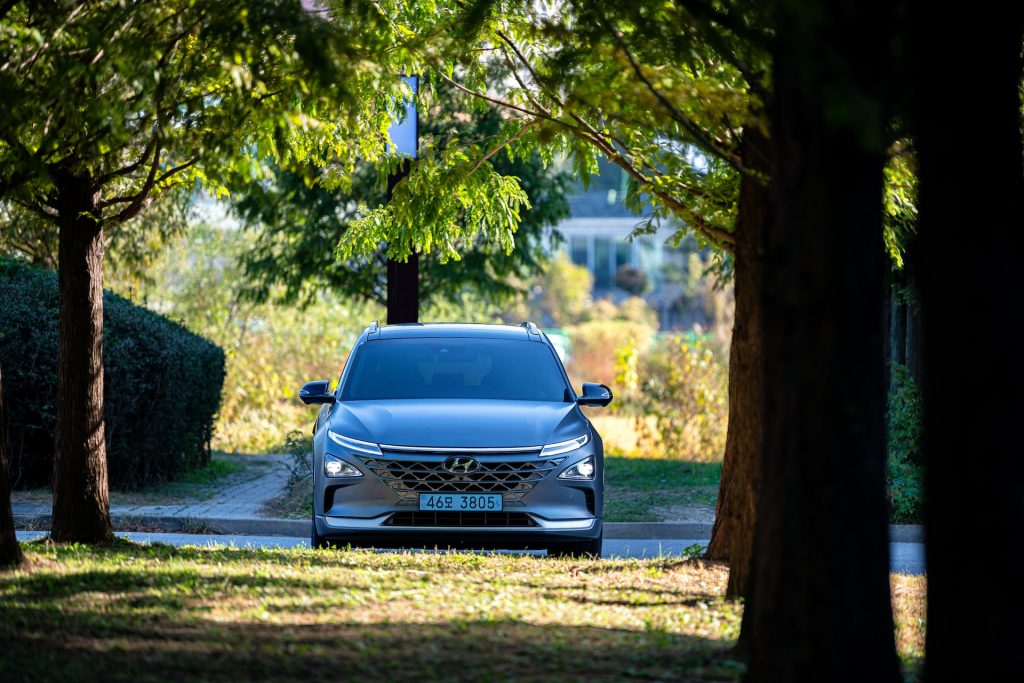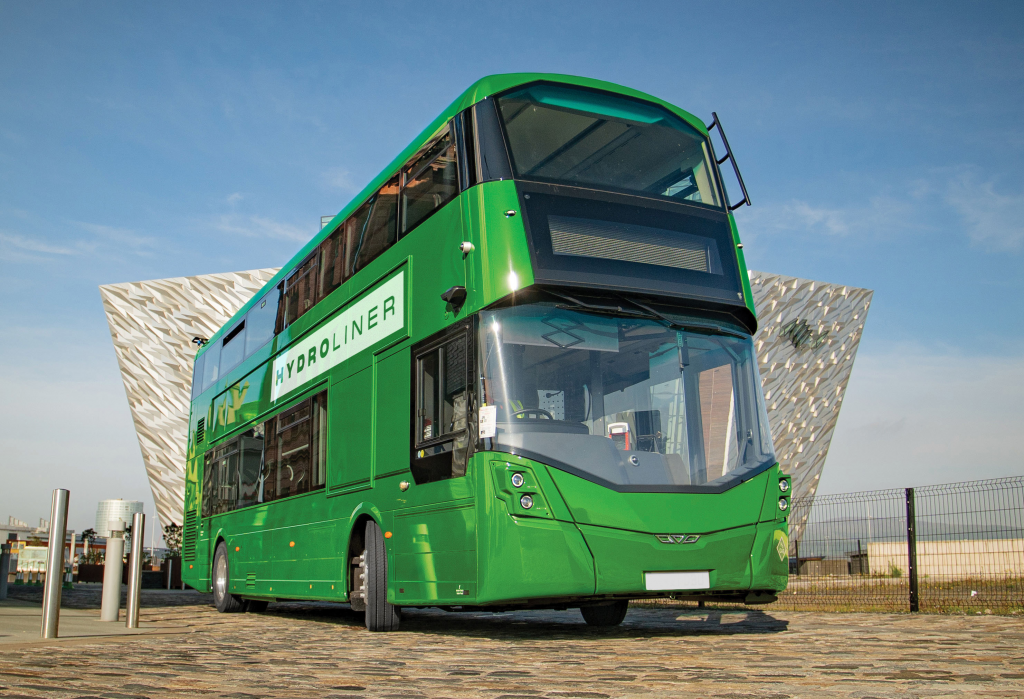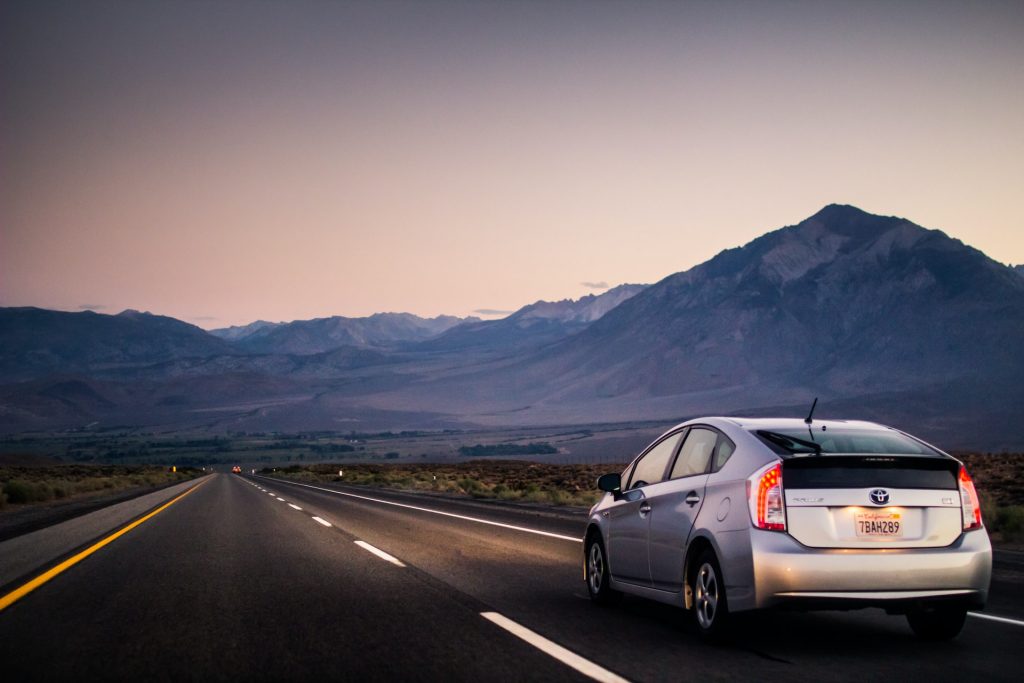There aren’t many hydrogen fuel cell cars on the road today. About 15,500 hydrogen passenger vehicles were sold in 2021, compared with about 4.2 million battery electric vehicles, excluding hybrids, according to automotive data provider JATO.
However, the road to our low-carbon future is a long one and there are plenty of reasons why hydrogen will make up lost ground.
Hydrogen fuel cell and battery electric vehicle technology are at very different places in terms of maturity. While the price of lithium-ion batteries has been falling for many years, the technology needed to produce economically priced fuel cells and the clean hydrogen to power them is at a much earlier stage of its development.
Lithium-ion battery pack prices have fell 89% between 2010 and 2021, from $1,200 per kWh to $132 per kWh, but cost declines are starting to slow dramatically as the technology matures, according to BloombergNEF.
A similar trajectory can be expected for hydrogen fuel cell vehicles, with Hyundai predicting its fuel cell system could reach cost parity with battery power by 2030.
The cost of producing clean hydrogen is already dropping rapidly with predictions than it will reach the all-important $1/kg level by 2030 in some markets and globally by the middle of the next decade, according to the likes of Rethink Energy and Wood Mackenzie.

Hyundai (Hydrogen Nexo model pictured) predict its fuel cell system could reach cost parity with battery power by 2030.
The other major challenge for hydrogen fuel cell vehicles is charging infrastructure. While battery electric cars can be plugged in almost anywhere, supplies of clean hydrogen are much more difficult to come by as producing and transporting hydrogen at scale is still in its infancy.
That is beginning to change. The first adopters of hydrogen fuel cells in vehicles are trucks and buses, which have reasonably predictable routes and can be served by hydrogen refuelling pumps at depots, ports and motorways. As time goes on, hydrogen will become available in more places, making it a viable option, particularly for fleet operators, such as taxi companies.
Importantly, some of the world’s biggest auto manufacturers are backing hydrogen cars.
Earlier this week, BMW Group CEO Oliver Zipse said its future Neue Klasse EV platform may include fuel cell power trains with vehicles based on the technology hitting the market in 2025.
“In our view, hydrogen is the missing piece of the puzzle that can complement electromobility places where battery-electric drivetrains are unable to gain traction,” Zipse said on the company’s earnings call.

The first adopters of hydrogen fuel cells in vehicles are trucks and buses (pictured: Wrightbus market-leading zero-carbon Hydrogen double-deck), which have reasonably predictable routes and can be served by hydrogen refuelling pumps at depots, ports and motorways.
The first cars on the Neue Klasse platform will include a sedan similar in proportions to the 3-Series midsize car and a “sporty SUV,” Zipse said on the call. “We could also imagine a hydrogen drivetrain for this new vehicle generation,” he said.
BMW will begin small-scale production at the end of 2022 of a hydrogen fuel-cell version of the X5 large crossover, called iX5 Hydrogen. “We are already thinking about a possible next generation,” Zipse said.
Toyota, the world’s biggest car company, released a new version of its Mirai hydrogen vehicle earlier this year equipped with a system that actually purifies the air around it rather than making dirtier. Unlike battery-electric vehicles, the Mirai can be refuelled with 350 miles or more of range in less than 5 minutes.

Toyota, the world’s biggest car company, released a new version of its Mirai hydrogen vehicle earlier this year equipped with a system that actually purifies the air around it rather than making dirtier.
As fleet operators plough ahead with major orders of hydrogen trucks and buses today, it will likely be a few years before similar developments are seen in the car market, but as we all know, getting out of the blocks first doesn’t guarantee winning the race. And if any vehicle is designed with range in mind, it’s one powered by hydrogen and not batteries.
To learn more about Ryze Hydrogen click here.






